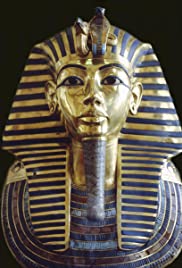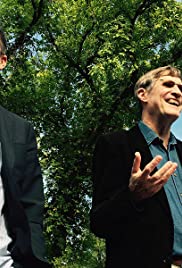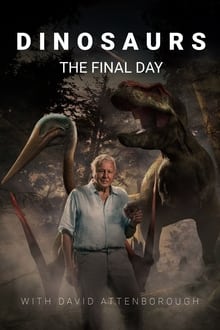
What killed King Tutankhamun? Ever since his spectacular tomb was discovered, the boy king has been the most famous pharaoh of all ancient Egypt. But his mysterious death, at just 19 years old, has never been explained. In this BBC One special, presenter Dallas Campbell reveals new scientific research and carries out unique experiments to get to the truth. For the first time, a virtual autopsy of Tut’s mummified body reveals astonishing secrets about the pharaoh. Using CT scan data, the programme creates the first ever full size, scientifically accurate image of the real Tutankhamun. Brand new DNA analysis uncovers a shocking secret about Tut’s family background, and the genetic trail of clues leads to a radical and revolutionary new theory to explain Tut’s sudden and unexpected death. This is an epic detective story that uncovers the extraordinary truth of the boy behind the golden mask.
You May Also Like

Diagnosed with multiple sclerosis, documentarian Matt Embry takes viewers on a transnational journey — from Italy to Canada, and from the lab to the home — in order to examine the politics of the condition.

In this second Q&A with Kevin Smith he now enters the homes of some of his fans in Toronto and London.

David Attenborough brings to life, in unprecedented detail, the last days of the dinosaurs. Palaeontologist Robert DePalma has made an incredible discovery in a prehistoric graveyard: fossilised creatures, astonishingly well preserved, that could help change our understanding of the last days of the dinosaurs. Evidence from his site records the day when an asteroid bigger than Mount Everest devastated our planet and caused the extinction of the dinosaurs. Based on brand new evidence, witness the catastrophic events of that day play out minute by minute.

For our 67th annual ski and snowboard film, we’re revisiting some of Warren’s favorite places. We followed Grete Eliassen and Jess McMillan into the Swiss Alps, and Kaylin Richardson and Chris Anthony around Deer Valley to pay homage to Stein Eriksen. We chased JT Holmes, Jonny Moseley and Jeremy Jones around Squaw Valley, and Tyler Ceccanti and Collin Collins across Montana’s Glacier Country. From Crested Butte, Kicking Horse and vertical lines in Alaska to pond skimming in Steamboat, these are your winter dreams, set to film. We also managed to dream up few spots Warren himself never dreamed of filming: Olympic snowboard champion Seth Wescott and Rob Kingwill carve sea-to-sky peaks at the end of the earth in Greenland, and the best big air riders in the world takeover Boston’s Fenway Park. This year, we went where our legacy — and where the snow —took us. We went Here, There, And Everywhere.

A university professor, confident that everything which occurs in life has a rational explanation, finds his beliefs severely challenged when, during a vacation to a remote coastal village in Norfolk, he blows through an ancient whistle discovered on a beach, awakening horrors beyond human understanding.

This follow-up to the 1989 documentary ONE YEAR IN A LIFE OF CRIME revisits three of the original subjects in New Jersey during a five-year period in the 1990s. We share in their triumphs and setbacks as they navigate lives of poverty, drug abuse, AIDS, and petty crime.

Aiming to be an in-depth study of hooliganism (both in act and in what it is to be one), director Donal MacIntyre, a former undercover journalist who was once under assignment as a hooligan himself, asks why hooliganism came to be and also why, of all sports, it’s so closely associated with football (http://moviefarm.co.uk).

From 1984 to 2007, dozens of women were sexually assaulted and murdered in South Los Angeles. Police began hunting one suspect, until they made a stunning discovery: four brutal serial killers were stalking the same area at the same time.

Offended by Irvine Welsh

This is the story of Gerrie and Hanna Tokkie, the first reality stars in the Netherlands. They suddenly gained fame in 2003 by allowing TV cameras into their daily lives. The whole of the Netherlands enjoys it. But then it becomes quiet, the Tokkies disappear into the background, but the name Tokkie remains. A documentary about the impact of their sudden fame and its consequences.

Mount Rushmore stands unrivaled in the world, a sky-high tribute to the heroes and ideals that shaped America. This stirring program features rare footage that chronicles its monumental construction. This iconic treasure is just one of the wonders to be found in the Black Hills, a region rich in history and majesty.

Six months after the 7 October attacks, Lyse Doucet presents searing accounts of the human cost from both sides and explores what it will take to bring about a lasting peace.